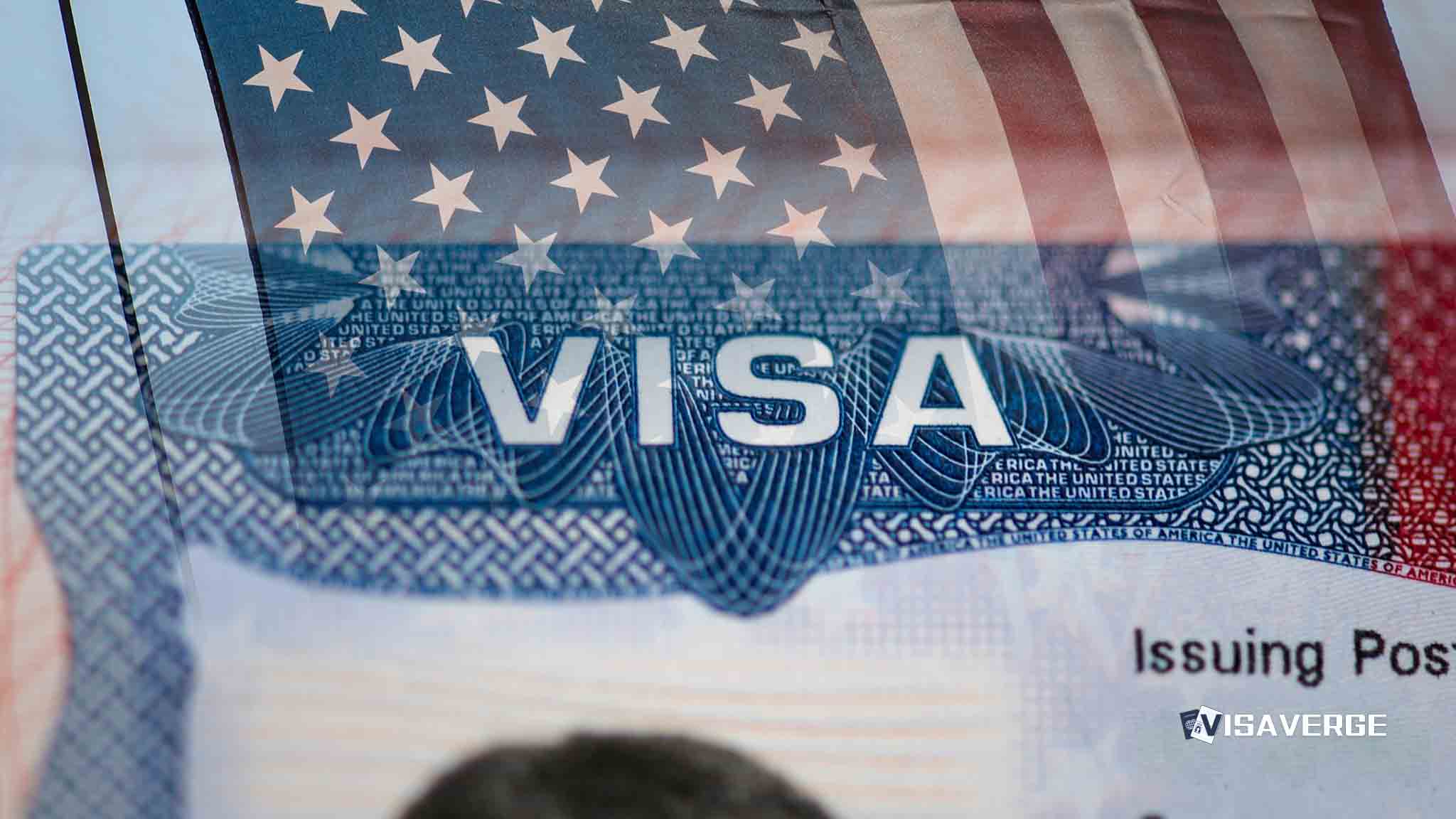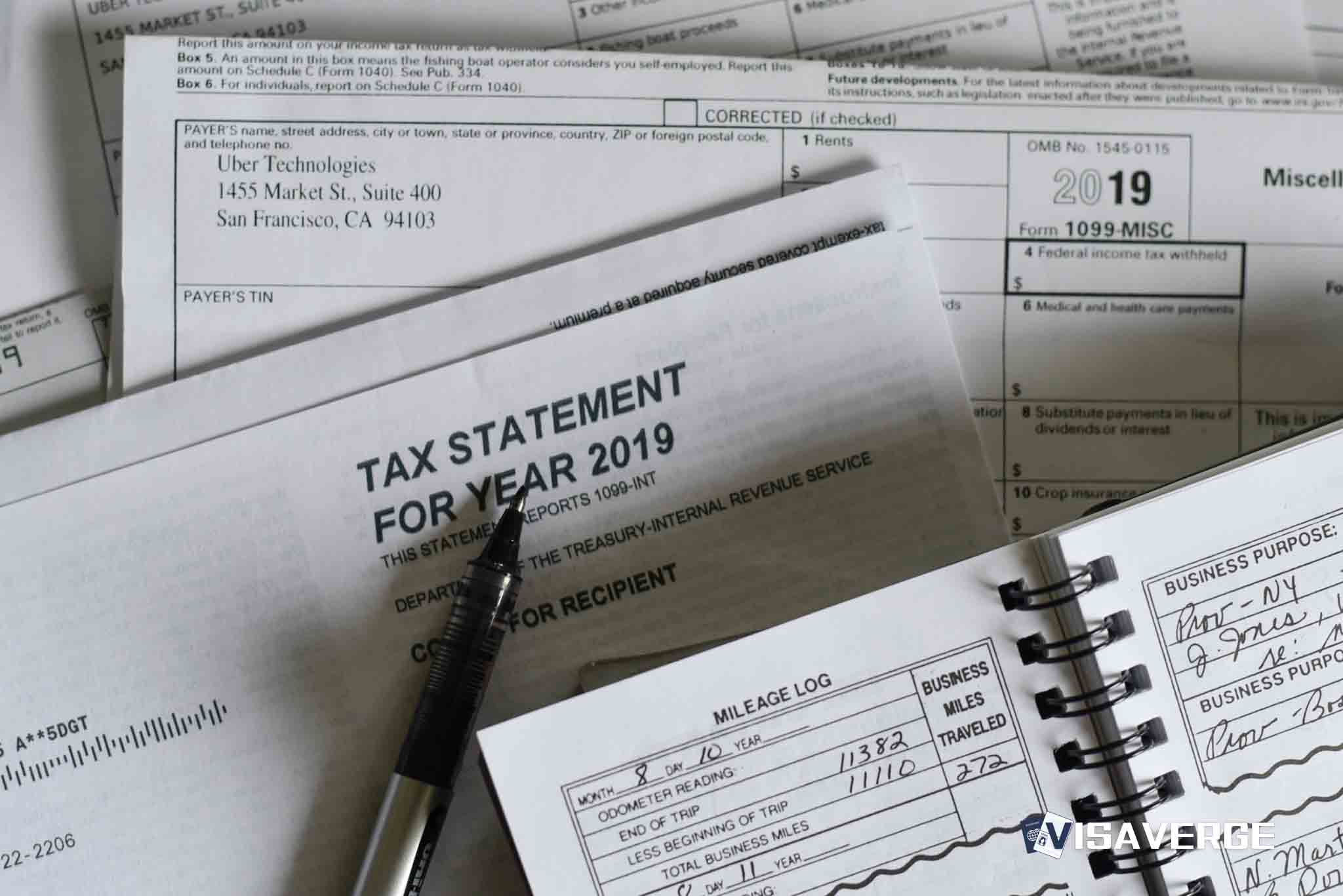Transitioning from an F1 Visa to a G3 Visa: Understanding the Process and Weighing the Pros and Cons
The journey of international education often involves navigating the complex world of visas and status changes. For many students on an F1 visa, there can come a time when a change in their visa status is required. Transitioning from an F1 visa, which is for international students, to a G3 visa, which is designated for representatives of international organizations and their immediate family members, is a process that requires careful consideration. In this blog post, we’ll explore the steps involved in this change, as well as the advantages and disadvantages of making the transition.
The Step-by-Step Transfer Process
Assessing Eligibility
Before embarking on the F1 to G3 visa transfer, ensure that you meet the criteria for the G3 visa. One must be a representative or member of an international organization recognized by the United States, such as the United Nations.
Notifying Your Current School
Inform your Designated School Official (DSO) about your decision to change visa status. They will need to update your record in the Student and Exchange Visitor Information System (SEVIS).
Application Preparation
Assemble all necessary documents for the application. This includes your current I-20, passport, proof of your affiliation with the international organization, and the Form I-566 if applicable.
Filing Form I-539
The next step is to file Form I-539, Application To Extend/Change Nonimmigrant Status. This form is used to request the visa status change from F1 to G3.

Application Outcome Wait
After submission, you wait for the United States Citizenship and Immigration Services (USCIS) to process your application and notify you of the outcome.
Remember that the approval of your visa transfer is not guaranteed, and the entire process can take several months, so plan accordingly.
Advantages of Changing to a G3 Visa
Transferring from an F1 to a G3 visa can have several benefits, making the endeavor worth considering:
- Employment Flexibility: The G3 visa potentially offers broader employment opportunities within the organization you represent, without the need for additional authorization.
- Stay Duration: As a G3 visa holder, your duration of stay in the United States is typically tied to your employment contract duration. This can offer a more stable and long-term residency compared to the F1 visa’s dependence on your educational program.
-
Family Inclusion: The G3 visa also allows for immediate family members to accompany you to the U.S., granting them a similar status and benefits.
Disadvantages of Visa Status Change
However, switching from an F1 to a G3 visa is not without its drawbacks:
- Navigating Bureaucracy: The process can be complex and time-consuming. It’s a bureaucratic transition that requires meticulous attention to paperwork and deadlines.
- Cost Implications: There are costs involved in the application process which you must bear, including SEVIS fees, form fees, and any legal consultation fees if you hire an immigration attorney.
-
Uncertain Outcome: There is no certainty of approval for the G3 visa. Your application might be denied, which could potentially affect your current F1 status.
-
Loss of Student Benefits: By transitioning away from the F1 visa, you lose certain student-specific privileges, such as on-campus employment and optional practical training (OPT).
Given these considerations, the decision to change your visa status should be made with a full understanding of the implications. Consulting with immigration experts or legal professionals could provide more personalized guidance.
If you wish to explore the F1 to G3 visa transfer further or seek assistance throughout the process, the Department of State’s Bureau of Consular Affairs offers resources for visa information that can be accessed here.
In conclusion, changing your visa status from F1 to G3 is a significant decision that comes with certain perks, such as employment flexibility and the potential for longer-term residency. Still, it’s not without its challenges. Thoroughly evaluate your situation, potential benefits, and the possible hurdles before making a commitment to initiate the transfer process. This due diligence will ensure you are well-informed and prepared for the road ahead as you transition to a new chapter in your international experience.
Still Got Questions? Read Below to Know More:
Can I work for any U.S. company with a G3 visa, or does it have to be the international organization I’m representing
A G3 visa is a nonimmigrant visa issued to representatives of foreign governments that are recognized by the United States but are not designated as a full member of an international organization or are members that enjoy broader participation. This type of visa is generally intended for those who are traveling to the United States on official business for their government. As a holder of a G3 visa, your primary purpose for being in the U.S. must be to conduct activities related to the representation of your government within an international organization.
Unfortunately, as a G3 visa holder, you are restricted in terms of your employment options in the U.S. You are not allowed to work for any U.S. company outside the scope of your official duties. According to the U.S. State Department:
“G3 visa holders may only work for the foreign government or international organization that is the recognized employer. Employment outside of that specific scope is not permitted on a G3 visa.”
To find more information on visa categories and employment restrictions, you can visit the official website for U.S. visas at the U.S. Department of State’s Bureau of Consular Affairs: https://travel.state.gov/content/travel/en/us-visas.html.
If you wish to work for a U.S. company that is not related to your official duties with the international organization or your government, you would need to obtain a different type of work visa, such as an H-1B for specialized occupations, which are subject to their own qualifications and application processes. For more information on work visas, you can refer to the ‘Work Visa’ section on the aforementioned U.S. Department of State website.
How early should I start the F1 to G3 visa transition process before my student visa expires
When transitioning from an F1 (student) visa to a G3 (representative of non-recognized or non-member governments) visa, it is important to begin the process well before your current visa expires. As a general rule of thumb, starting the transition process at least 90 days before your F1 visa expires can be a safe bet. This timeline allows for any processing delays and ensures that you have ample time to gather the necessary documentation and go through each step without being rushed. Here’s a simple breakdown:
- Check the expiration date on your F1 visa to determine your time frame.
- Contact the embassy or consulate representing the non-recognized or non-member government you will be working for, to understand the specific requirements and timeline for a G3 visa application.
- Assemble all required documents, which typically include a valid sponsorship from the international organization, proof of employment, and possibly a no-objection certificate, among other items.
The U.S. Department of State’s Bureau of Consular Affairs provides an informative page on G visas (including G3 visas) that you’ll want to review: U.S. Visas for Employees of International Organizations (G visas).
“Applicants for G visas should apply at the U.S. Embassy or Consulate with jurisdiction over their place of permanent residence,” as stated on the Department’s website. This suggests that you should apply for your G3 visa in your country of permanent residence, unless circumstances necessitate otherwise.
Remember, each individual’s situation might vary, and consular officers have the discretion to request additional information during the application process. Therefore, starting early gives you the flexibility to address any unexpected challenges and ensures a smooth transition from your F1 to your G3 visa status.
Are there any travel restrictions I should know about while my G3 visa application is being processed
Yes, there are some travel restrictions that you should be aware of while your G3 visa application is being processed. It’s important to understand that while your application is pending, you might not be able to travel freely:
- Travel Restrictions to the U.S.: If you are outside the United States when applying for the G3 visa, generally, you should not travel to the U.S. using another type of visa or the Visa Waiver Program without first consulting the U.S. embassy or consulate processing your G3 application. Doing so might be considered visa fraud if you are intending to stay for reasons related to your future G3 status.
- Travel Within Your Home Country or Internationally: While there are no specific U.S. rules prohibiting you from traveling within your own country or going to another country while waiting for your G3 visa, you should keep in mind that you must be present in your country of residence when your visa is approved to receive your visa and passport. Additionally, avoid travel to regions with travel warnings or bans as this might affect your G3 visa application negatively.
Regarding quotes and guidelines directly from authoritative immigration sources, you should refer to the official U.S. Department of State – Bureau of Consular Affairs website or directly contact the embassy or consulate handling your application for the most accurate and up-to-date information.
Here’s what they advise: “After you have completed the steps on the Immigrant Visa Process on usvisas.state.gov, including paying the necessary fees and submitting the required immigrant visa application form (DS-260), Affidavit of Support, and supporting documents to the National Visa Center (NVC), they will review your file for completeness. Once your case becomes qualified for an interview, NVC will work with us to schedule an interview appointment for you.”
Please note that any changes in your travel plans should be communicated to the U.S. embassy or consulate handling your visa application. For comprehensive information and travel advisories, always consult the U.S. Department of State – Bureau of Consular Affairs website at https://travel.state.gov/.
If my application for a G3 visa gets denied, will I have to leave the U.S. immediately, or can I stay on my current F1 visa
If your application for a G3 visa is denied and you are currently in the United States on an F1 visa, you generally will not have to leave the country immediately as long as your F1 status remains valid. It’s crucial to maintain valid immigration status while in the U.S. Here’s what you should consider in this situation:
- F1 Visa Validity: Ensure that your F1 visa is still valid and that you are complying with all the requirements of your student status. This includes being enrolled in a full course of study and not engaging in unauthorized employment.
- I-20 Form: Keep your I-20 form updated. This document is provided by your educational institution and it certifies your eligibility for nonimmigrant student status.
According to the U.S. Department of State, “Your student (F) visa is valid until it expires, or until you break the rules of your visa status.” This means as long as you adhere to the F1 visa regulations, you can continue to stay legally in the U.S.
If you are concerned about the next steps after a G3 visa denial, it might be beneficial to consult with an immigration attorney or an accredited representative for personalized advice. The U.S. Citizenship and Immigration Services (USCIS) and the U.S. Department of State both offer resources that can guide you on maintaining lawful status.
For more details, please visit:
- The USCIS website on maintaining nonimmigrant status: USCIS – Maintaining Your Nonimmigrant Status
- The U.S. Department of State website on student visas: U.S. Visas – Student Visa
What if my family includes a child studying in the U.S. on an F1 visa, can they switch to G3 status too
Absolutely, if your family includes a child studying in the U.S. on an F1 visa, they can potentially switch to G3 status, assuming that they are eligible. G3 visas are for representatives of non-recognized or non-member countries to international organizations and their immediate family members. If you as a parent or guardian are eligible for a G3 visa, typically your unmarried sons and daughters who are under 21 can also be eligible to apply for G3 visas as dependents.
To switch from an F1 student visa to a G3 visa, your child would typically need to:
- Obtain a formal offer or employment from a qualifying international organization or have a parent or guardian that has such standing.
- Submit Form I-566, Interagency Record of Request – A, G, or NATO Dependent Employment Authorization or Change/Adjustment to/from A, G, or NATO Status, to the U.S. Department of State for approval.
- File Form I-539, Application to Extend/Change Nonimmigrant Status, with U.S. Citizenship and Immigration Services (USCIS) to request the change of status.
Here’s a direct quote that outlines this process:
“If you are already in the United States, you may apply to U.S. Citizenship and Immigration Services (USCIS) to change your status to that of a G nonimmigrant.”
For detailed procedures and forms, it is essential to consult the official USCIS website and official resources from the U.S. Department of State:
- USCIS for Change of Status: I-539, Application to Extend/Change Nonimmigrant Status
- U.S. Department of State’s on G Visas: U.S. Visas for Employees of International Organizations (G Visas)
Remember that immigration policies are subject to change, and it is important to ensure that you are referring to the most current information and guidance from credible sources. Consulting with an immigration attorney or accredited representative could provide personalized guidance for your family’s specific situation.
Learn today
Glossary of Immigration Terminology
- F1 Visa: A nonimmigrant student visa issued to international students who are pursuing academic studies in the United States. It allows students to enter and reside in the country for the duration of their educational program.
- G3 Visa: A nonimmigrant visa designated for representatives of international organizations and their immediate family members, allowing them to enter and reside in the United States.
-
Designated School Official (DSO): An individual appointed by an educational institution to assist international students with visa-related matters and ensure compliance with immigration regulations.
-
Student and Exchange Visitor Information System (SEVIS): A government database that tracks and monitors the activities and immigration status of international students and exchange visitors in the United States.
-
Form I-20: A document issued by a U.S. educational institution to international students, certifying their admission and eligibility for an F1 visa. It contains information about the student’s program of study, duration of stay, and financial support.
-
Form I-566: An application form used to request an extension or change of nonimmigrant status for representatives of international organizations applying for a G3 visa.
-
United States Citizenship and Immigration Services (USCIS): The government agency responsible for processing immigration-related applications and petitions, including visa status changes.
-
Bureaucracy: The administrative system and procedures characterized by complex rules, paperwork, and rigid hierarchy, which can be involved in the process of changing visa status.
-
SEVIS fees: Fees paid by international students to cover the cost of maintaining the SEVIS database and supporting the administration of the F1 visa program.
-
Optional Practical Training (OPT): A program that allows F1 students to gain hands-on work experience in their field of study in the United States for a specified period after completing their academic program.
-
Bureau of Consular Affairs: A department within the U.S. Department of State responsible for providing visa information, consular services, and support to individuals seeking to travel to or reside in the United States.
-
Immigration attorney: A legal professional specializing in immigration law, who provides guidance and assistance in navigating the immigration process and represents clients in immigration-related matters.
In conclusion, transitioning from an F1 visa to a G3 visa is a big step with its own set of pros and cons. From employment flexibility to longer-term residency, it offers some exciting opportunities. However, the process can be complex, costly, and uncertain. So, it’s crucial to carefully weigh the benefits and challenges before making a decision. If you’re looking for more detailed information and expert guidance, head over to visaverge.com and explore the wealth of resources available. Good luck with your visa journey!









